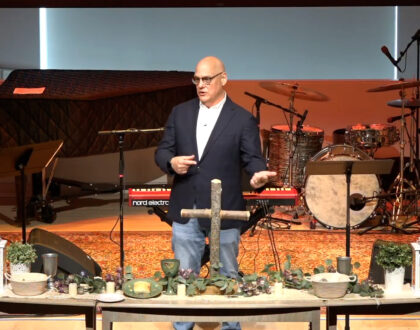The Essence of Spiritual Leadership

We have started a new church year and have installed a new class of church leaders. Leadership in the church is essential on every level. Former Roxbury Latin headmaster Tony Jarvis once made the following observation about the challenge of leadership: “Whatever power a leader has is overshadowed by the second-guessing and criticism he receives for the decisions he makes. Leadership does not confer happiness…. at the heart of all leadership, at any age, is character; the courage to cling tenaciously to a vision, the grit to exhaust yourself in helping others share that vision, and the toughness to endure the blame for every difficulty along the way.”
Leadership is dependent on character and our world is in serious need of healthy leaders who are committed to character formation and growth. Not all leaders have character. John Maxwell says: “PEOPLE determine the potential of the organization. RELATIONSHIPS determine the morale of the organization. STRUCTURE determines the size of the organization. VISION determines the direction of the organization. But LEADERSHIP… determines the success of the organization.”
Leadership matters but not all leadership is the same. In his classic book “Spiritual Leadership,” J. Oswald Sanders talks about the essence of Spiritual Leadership and how it is different. “Jesus knew that the idea of leader as ‘loving servant of all’ would not appeal to most people. Securing our own creature comforts is a much more common mission. But ‘servant’ is Christ’s requirement for leading in God’s Kingdom.” Put succinctly, we need more servants in our culture of glorifying and promoting self. Sanders says there are basic questions that should be asked when determining the potential for spiritual leadership. These include:
• How well do you maintain self-control when things go wrong?
• Do you think independently or just go along with the group?
• How well do you handle criticism?
• Can you turn disappointment into creating new opportunities?
• Do you collaborate and work well with others?
• Are you a peacemaker?
• Do people trust you with difficult matters?
• Can you accept opposition to your viewpoint or decision without taking offense?
• Are you tactful?
• Can you forgive others?
• Are you optimistic or cynical?
• Do you live with passion?
Not all leaders fully understand spiritual leadership. Spiritual leadership requires ongoing discipline, reflection, and growth. Spiritual leaders intentionally carve out time for self-care and spiritual formation. After all, we cannot share with others what we do not have ourselves. Spiritual leadership is grounded in exhibiting the fruits of the spirit – love, joy, peace, patience, kindness, generosity, faithfulness, gentleness, and self-control. It is never mastered.
Jesus told his disciples, “Whoever wants to be great among you must be your servant and whoever wants to be first must be slave of all.” When it’s all said and done, spiritual leaders exist to serve the needs of others and are not preoccupied with self. Spiritual leaders operate from a deep sense of humility and as C.S. Lewis famously said: “Humility is not thinking less of yourself, but thinking of yourself less.” Looking to the needs of others becomes a way of life. Mark Twain once said, “Our goal in life is not to be superior to our fellow man, but only superior to our former self.”
In this age of increased materialism, competition, judgment, polarization, and self-aggrandizement, spiritual leadership has become more necessary than ever before.
Recommended Posts

Key Challenges for 21st Century Christianity
June 11, 2025

Healing, Growth, & Renewal Over Time
May 30, 2025


